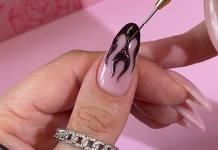Will our industry be Virtually Transformed?
Candice Gardner says that virtual services will continue to play a big role in the beauty industry even after salon doors start to reopen.
 No doubt conversation on Covid-19 is wearing thin. As I write this from a sunny corner in my kitchen, I feel compelled to reflect on the global pandemic and the impact this has had on our lives, livelihoods and industry over the past couple of months.
No doubt conversation on Covid-19 is wearing thin. As I write this from a sunny corner in my kitchen, I feel compelled to reflect on the global pandemic and the impact this has had on our lives, livelihoods and industry over the past couple of months.
Adapting to social distancing and self-isolation has not been easy; in fact it has caused much stress and anxiety for health, social and economic reasons. And yet out of difficulty there can be positive changes and outcomes too.
For an industry powered by human touch and connection, the global pandemic has had profound impacts on our service-led business. Our industry, like so many others, is not just adapting to a new way of life, but to a new way of business too. Closures and social distancing measures have forced us to re-evaluate how we can stay connected with customers, not only to survive and sustain business for the future, but to provide critical self-care advice that supports both physical and mental wellbeing as we isolate and adjust.
Digital technology has provided us with multiple ways to stay connected to those we care about, allowed us to continue with many of our daily tasks and needs, and afforded access to important self-help. From virtual dinner parties, celebrations and casual catch-ups to daily exercise, education and online shopping, the benefits and advantages of society's digital progression has never been more evident. I wonder at how different things might have been just 20 or 30 years ago.
And this very technology is helping many skin care business's adapt and weather these changes. For some it has been about building an online presence through social media and website development; for some exploring new platforms and ways of connecting and communicating with customers.
The most exciting developments have been around taking services online. Virtual consultations are providing important skin and body care advice linked to handwashing, skin concerns due to stress, and the inevitable lifestyle changes. Alongside effective homecare regimens, therapists are sharing professional hacks and how to give yourself a treatment at home.

There has also been a rise in virtual masterclasses. Providing important information and education not only on skin care topics but linked to self-care and mental health. Some therapists are even partnering with other health and wellness experts for masterclasses and Live Q&As to bring valuable support to their customers.
These digital opportunities provide every business with the potential to access a wider audience, not only vital now but as doors re-open and business rebuilds its in-person service offering.
Many skin and wellbeing therapists have resisted embracing technology in the belief that it conflicts with our hands-on approach. The pandemic has proved that the two can co-exist and be mutually beneficial.
I doubt anyone would dispute the fact that we will need the human touch and intention that we are renowned for after months of nothing but digital interaction. Yet public behaviours and expectations have shifted. We will not go backwards. It is naïve the think life will simply return to how things were before.

As our doors start to reopen, there will be a lot to do to rebuild customer confidence. The need for human touch will not be in doubt, but there will still be anxiety around increased physical contact and services. We will have to work hard to find the balance between stringent cleaning, sanitation and infection controls that can make an environment feel highly clinical but devoid of the essential human connection we are all craving.
Virtual services will continue to play a role as we establish trust and assure customers of our practice standards and their safety, but it will be more than that. Having become accustomed to literally having us at their fingertips, they will still want us to be there right when they need us. Not just when the appointment book has an open slot next Thursday! Surely that can't be a bad thing for business? I suspect it is going to be vital to get business back on its feet and will be here to stay!
Candice Gardner is Education Manager – Digital and Content at The International Dermal Institute and Dermalogica.








